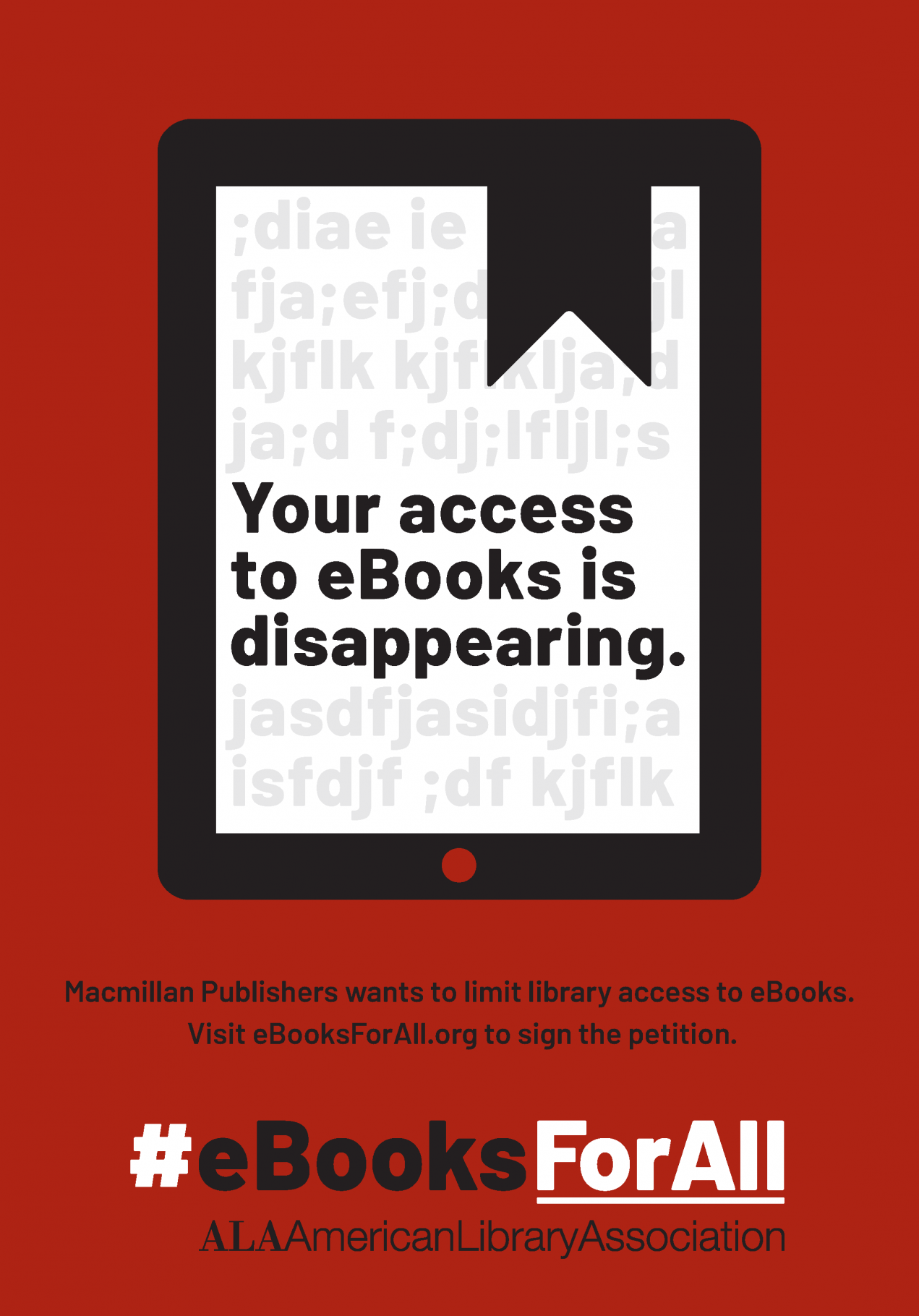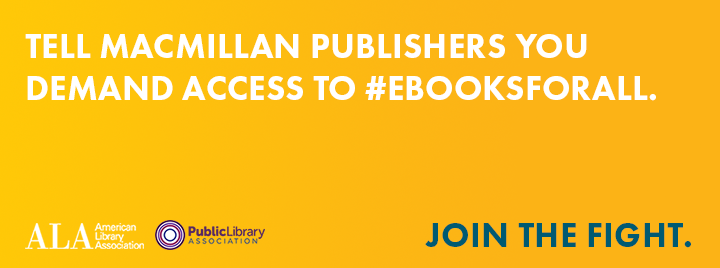E-Lending, Embargoes and Equitable Access: Interview with Sari Feldman
16 October 2019
The rules around library eLending are on the agenda again in the United States, following the decision by one publisher to impose limits on libraries’ ability to give access to new books.
We interviewed Sari Feldman, past President of the American Library Association and currently a Senior Policy Fellow focusing on eBooks, about the situation.
 1. Can you briefly explain the change in how Macmillan is working that has triggered this effort?
1. Can you briefly explain the change in how Macmillan is working that has triggered this effort?
Many of the major publishers, referred to in the US as the Big 5, have changed or altered the terms of their eBook pricing and license agreement. Macmillan is proposing that beginning November 1 they will decrease the price to $30 for a single initial copy of an eBook, which comes with perpetual access. But it will be ONLY after an eight-week embargo period that a library can purchase additional copies. Those additional copies will be available for $60 per copy for a two year license. Libraries are objecting to the embargo that denies equitable access to and use of eBooks.
2. Is Macmillan alone in doing this?
Macmillan is the only one of the Big 5 publishers with an embargo. Blackstone Audio, a distributer of digital audio, has embargoed selected new release audiobooks for 90 days and Amazon has a permanent embargo on all original eBooks and Audible audio content.
3. Do you expect other publishers to follow suit?
We believe that it is important to have a clear and strong message opposing embargoes. We do not believe, however, that other Big 5 publishers are considering a business model that includes an embargo.
4. What impact does this have on readers?
Limiting access to new titles for libraries means limiting access for readers most dependent on libraries, including people with the fewest resources to purchase new eBoooks on demand, people with disabilities, students and researchers needing easy access to review content from a variety of sources, and readers with limited access to library locations. Macmillan is restricting equitable access and suppressing the ability of readers to discover new titles and authors through the library.
5. Where is the evidence of eLending harming sales or otherwise?
We have not seen data that supports Macmillan’s position. Libraries pay for books and we do not believe that we suppress business growth for publishers or authors. Public libraries alone spend more than $1.3 billion on their collection. Ebook prices are extremely high for libraries and libraries often pay up to five times the retail price per title. Moreover, there is much less discussion about how libraries increase sales through many activities that are effectively free marketing for authors and their works.
6. Why does it matter so much that there is no embargo?
Libraries are critical to building readership at a time when reading is on the decline in the US. Libraries promote literacy and reading for all ages. Readers are attracted to eBooks and if libraries cannot get the content in the quantity needed to satisfy readers, excessive wait time will supress discovery and interest in eBooks.
7. How well does the licensing offer from publishers work for libraries?
Libraries are concerned about many aspects of publisher business models. While limited term licensing is growing in popularity among the Big 5 publishers, libraries recognize that this model impacts affordability of content and the cost of managing collections when titles must be repurchased to maintain a backlist of author works. Limited term licensing also impacts the preservation and archiving of digital content and the ability of libraries to maintain rich retrospective collections.
8. Is the current model of eBook lending in general sustainable?
We believe that the current models could be refined and result in a business plan that is more sustainable and more satisfying to all parties; publishers, authors and libraries.
We hope that there is an opportunity to come to the table and to design a better approach to eBook collections and the reading ecosystem.
9. What role do you see libraries playing in the eBook chain? Does this differ from the role they play in the traditional book chain?
Public libraries represent more than 16,000 essential outlets in communities across the nation. While book stores are also important to building readership in communities and libraries work collaboratively with community bookstores, bookstores do not have nearly the penetration in the US and many communities do not have any bookstores.
Libraries are critical to building and sustaining readership, creating discovery of new and midlist authors, and providing equitable access to readers most dependent on libraries. Readers in remote locations, those with the fewest resources and those with disabilities as mentioned previously rely on libraries for reading material. Librarians are trained to provide readers advisory services and to support readers of all ages. Equitable access is one of the core values of public libraries and must be preserved in the digital age.
10. What scenarios do you see for library eBook lending in 10 years? What will this mean for readers?
I believe that there is so much good will between libraries and publishers that we will weather this current challenge with Macmillan. Publishers and libraries have the common goal of building and sustaining readers and authors are extremely supportive of and interested in having their books in libraries and receiving promotion through librarians, library social media and library programs. I truly believe that these efforts will help us to achieve new business models that will balance the cost-benefit between libraries and publishers and will help to not only sustain but to build the eBook industry.
Click in the image below for more details about ALA’s #eBooksForAll campaign and how you can get involved:
Read more about IFLA’s work around eLending.
